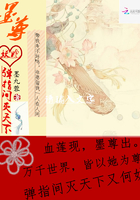That Alnaschar vision had fallen to the ground.It was as yet early morning;a delicious, fresh, lovely June day, the air redolent with the scents of flower-growth and bloom; and half the time the girls had been ostensibly employed in the French reading they had been leaning out of the open window trying to reach a cluster of climbing roses.They had secured them at last, and the bunch lay on Cynthia's lap, but many of the petals had fallen off, so, though the perfume lingered about the window-seat, the full beauty of the flowers had passed away.Mrs Gibson had once or twice reproved them for the merry noise they had been making, which hindered her in the business of counting the stitches in her pattern; and she had set herself a certain quantity to do that morning before going out, and was of that nature which attaches infinite importance to fulfilling small resolutions, made about indifferent trifles without any reason whatever.'Mr Roger Hamley,' was announced.'So tiresome!' said Mrs Gibson, almost in his hearing, as she pushed away her embroidery frame.She put out her cold, motionless hand to him, with a half-murmured word of welcome, still eyeing her lost embroidery.He took no apparent notice, and passed on to the window.'How delicious!' said he.'No need for any more Hamley roses now yours are out,' 'I agree with you,' said Mrs Gibson, replying to him before either Cynthia or Molly could speak, though he addressed his words to them.'You have been very kind in bringing us flowers so long; but now our own are out we need not trouble you any more.' He looked at her with a little surprise clouding his honest face; it was perhaps more at the tone than the words.Mrs Gibson, however, had been bold enough to strike the first blow, and she determined to go on as opportunity offered.Molly would perhaps have been more pained if she had not seen Cynthia's colour rise.She waited for her to speak, if need were; for she knew that Roger's defence, if defence were needed, might be safely entrusted to Cynthia's ready wit.He put out his hand for the shattered cluster of roses that lay in Cynthia's lap.'At any rate,' said he, 'my trouble - if Mrs Gibson considers it has been a trouble to me - will be over-paid, if I may have this.' 'Old lamps for new,' said Cynthia, smiling as she gave it to him.'I wish one could always buy nosegays such as you have brought us, as cheaply.' 'You forget the waste of time that, I think, we must reckon as part of the payment,' said her mother.'Really, Mr Hamley, we must learn to shut our doors on you if you come so often, and at such early hours! I settle myself to my own employment regularly after breakfast till lunch-time;and it is my wish to keep Cynthia and Molly to a course of improving reading and study - so desirable for young people of their age, if they are ever to become intelligent, companionable women; but with early visitors it is quite impossible to observe any regularity of habits.' All this was said in that sweet, false tone which of late had gone through Molly like the scraping of a slate-pencil on a slate.Roger's face changed.
His ruddy colour grew paler for a moment, and he looked grave and not pleased.
In another moment the wonted frankness of expression returned.Why should not he, he asked himself, believe her? it was early to call; it did interrupt regular occupation.So he spoke, and said, - 'I believe I have been very thoughtless - I'll not come so early again;but I had some excuse to-day: my brother told me you had made a plan for going to see Hurst Wood when the roses were out, and they are earlier than usual this year - I've been round to see.He spoke of a long day there, going before lunch -- ' 'The plan was made with Mr Osborne Hamley.I could not think of going without him!' said Mrs Gibson, coldly.'I had a letter from him this morning, in which he named your wish, and he says he fears he cannot be at home till they are out of flower.I daresay they are not much to see in reality, but the day is so lovely I thought that the plan of going to Hurst Wood would be a charming excuse for being out of doors.' 'Thank you.How kind you are! and so good, too, in sacrificing your natural desire to be with your father as much as possible.' 'I am glad to say my father is so much better than he was in the winter that he spends much of his time out of doors in his fields.He has been accustomed to go about alone, and I - we think that as great a return to his former habits as he can be induced to make, is the best for him.' 'And when do you return to Cambridge?' There was some hesitation in Roger's manner as he replied, - 'It is uncertain.You probably know that I am a Fellow of Trinity now.















